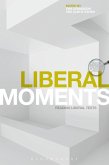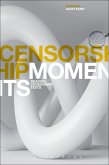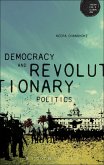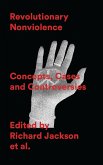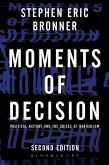This book is available as open access through the Bloomsbury Open Access programme and is available on www.bloomsburycollections.com.
Since at least the mid-seventeenth century, the concept of revolution has been an important tool both for those seeking to bring about political change and for those trying to understand it. And it is as relevant today as it has ever been. This volume re-evaluates our understanding of the history of revolutionary thought by examining a selection of key texts. These range from the 17th to the 20th century, and are carefully chosen to include both constitutional documents and theoretical works by figures such as James Harrington, Jean-Jacques Rousseau, Maximilian Robespierre, Peter Kropotkin and Deng Xiaoping
Each chapter engages with a particular revolutionary moment via a specific text, usually an extract of around 300 words, and considers the significance of the text for the history of revolutionary thought. The structure of the book allows readers to make connections and comparisons across the different revolutionary texts and moments, thereby providing a broader, deeper and more nuanced understanding of revolutions. Stimulating, accessible and interdisciplinary, Revolutionary Moments will appeal to students and researchers in the history of political thought and intellectual history, and beyond.
Since at least the mid-seventeenth century, the concept of revolution has been an important tool both for those seeking to bring about political change and for those trying to understand it. And it is as relevant today as it has ever been. This volume re-evaluates our understanding of the history of revolutionary thought by examining a selection of key texts. These range from the 17th to the 20th century, and are carefully chosen to include both constitutional documents and theoretical works by figures such as James Harrington, Jean-Jacques Rousseau, Maximilian Robespierre, Peter Kropotkin and Deng Xiaoping
Each chapter engages with a particular revolutionary moment via a specific text, usually an extract of around 300 words, and considers the significance of the text for the history of revolutionary thought. The structure of the book allows readers to make connections and comparisons across the different revolutionary texts and moments, thereby providing a broader, deeper and more nuanced understanding of revolutions. Stimulating, accessible and interdisciplinary, Revolutionary Moments will appeal to students and researchers in the history of political thought and intellectual history, and beyond.



